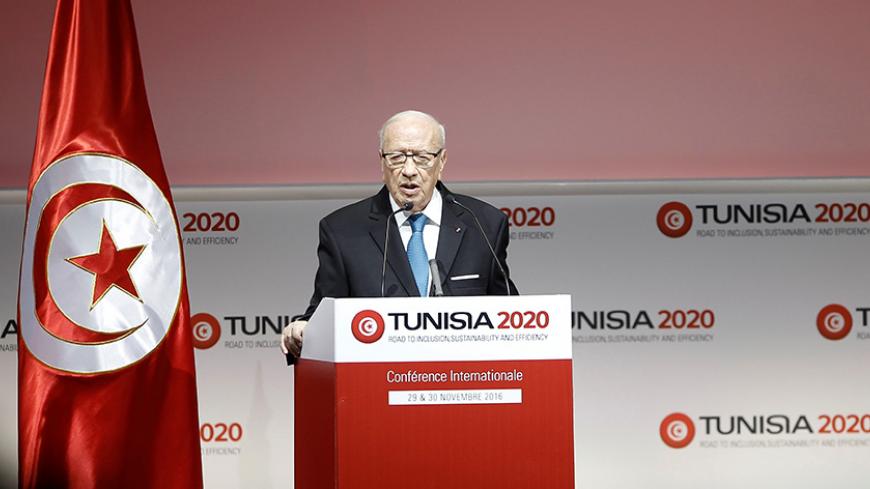The return of Tunisian fighters from conflict zones in Syria, Iraq and Libya has Tunisia torn. The Tunisian authorities are torn between public pressure to revoke the citizenship of the returning terrorists and the state’s international commitments that necessitate a minimum of cooperation with other countries to hand over Tunisians suspected of links with jihadi groups.
In his latest speech on New Year’s Eve, Tunisian President Beji Caid Essebsi firmly stated that Tunisia “will implement the law against Tunisians returning home from battlefields in Syria, Libya and Iraq and will not welcome them with open arms.” Essebsi had previously said in an interview with Euronews on Dec. 2, “Jihadis are no longer a threat, and many of them want to return home. … We will not put them all in jail.”



